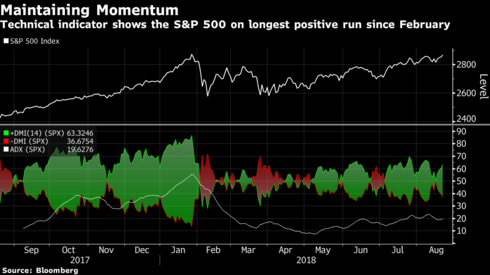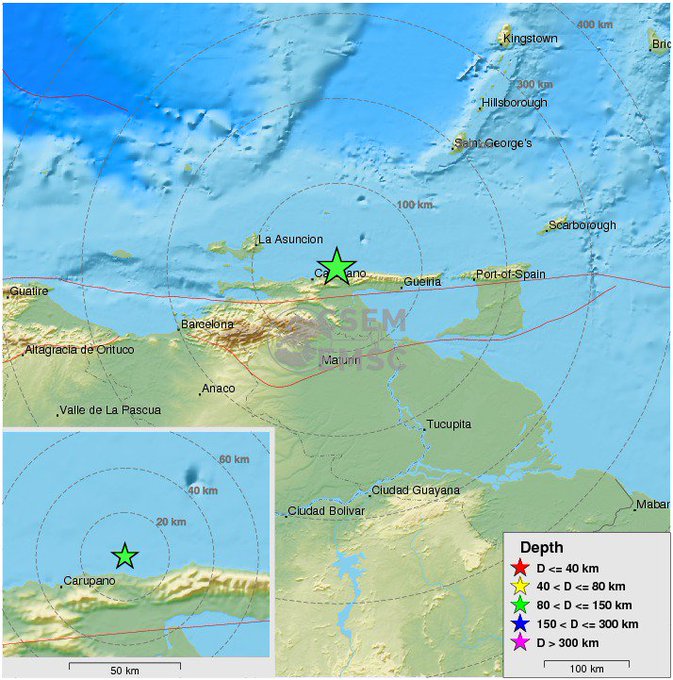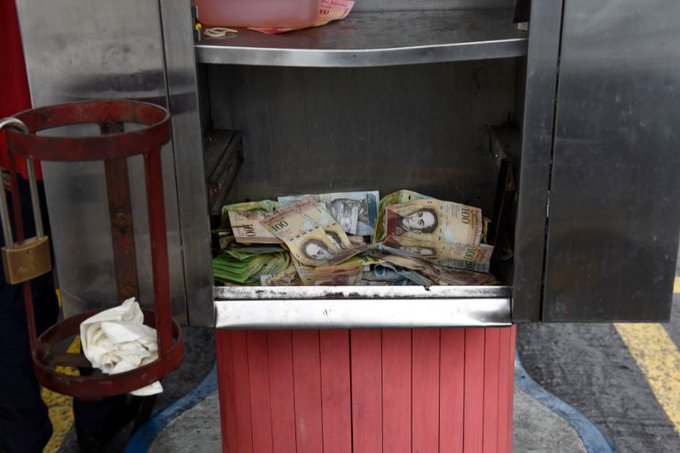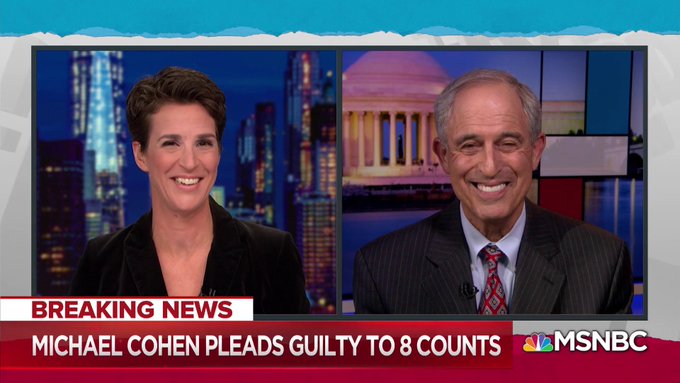GOLD: $1196.75 UP $3.45 (COMEX TO COMEX CLOSINGS)
Silver: $14.77 DOWN 1 CENT (COMEX TO COMEX CLOSINGS)
Closing access prices:
Gold $1195.60
silver: $14.75
For comex gold:
AUGUST/
NUMBER OF NOTICES FILED TODAY FOR AUGUST CONTRACT: 16 NOTICE(S) FOR 1600
TOTAL NOTICES SO FAR 2286 FOR 228,600 OZ (7.110 tonnes)
For silver:
AUGUST
0 NOTICE(S) FILED TODAY FOR
nil OZ/
Total number of notices filed so far this month: 1178 for 5,890,000 oz
XXXXXXXXXXXXXXXXXXXXXXXXXXXXXX
XXXXXXXXXXXXXXXXXXXXXXXXXXXXXX
Bitcoin: BID $6604/OFFER $6689: UP $175(morning)
Bitcoin: BID/ $6386/offer $6471: UP $126 (CLOSING/5 PM)
end
First Shanghai gold fix comes at 10 pm est
The second Shanghai gold fix: 2:15 pm
First Shanghai gold fix gold: 10 pm est: $1201.54
NY price at the same time:$1196.20
PREMIUM TO NY SPOT: $5.34
XX
Second gold fix early this morning: $ 1200.16
USA gold at the exact same time:$1194.15
PREMIUM TO NY SPOT: $6.01
China is controlling the gold market
WE WILL NOT PROVIDE LONDON FIXES AS THEY ARE NOT ACCURATE AS TO WHAT IS GOING ON AT THE SAME TIME FRAME.
Let us have a look at the data for today
xxxxxxxxxxxxxxxxxxxxxxxxxxxxxxxxxxxxxxxxxxxxxxxxxxxxxxxxxxxxxxxxxxxxxxxxxx
In silver, the total OPEN INTEREST ROSE BY A VERY STRONG 5583 CONTRACTS FROM 238,613 UP TO 244,196 ACCOMPANYING YESTERDAY’S 12 CENT RISE IN SILVER PRICING AT THE COMEX. WE HAVE GENERALLY BEEN WITNESSING A SLOW COMEX ACCUMULATION THESE PAST SEVERAL DAYS AND AFTER A ONE DAY HIATUS LAST WEEK, IT CONTINUES ONWARD. YESTERDAY I WROTE: “TUESDAY’S OI SHOULD BE A WHOPPER”. ACTUALLY IT WAS TODAY AS WE NOW HAVE AN ALL TIME RECORD FOR COMEX OPEN INTEREST.
WE HAVE ALSO WITNESSED A LARGE AMOUNT OF PHYSICAL METAL STAND FOR COMEX DELIVERY(WELL OVER 30 MILLION OZ AT THE COMEX FOR JULY AND OVER 6 MILLION OZ FOR AUGUST) AS WELL AS CONSIDERABLE LONGS PACKING THEIR BAGS AND MIGRATING OVER TO LONDON IN GREATER NUMBERS IN THE FORM OF EFP’S. WE WERE NOTIFIED THAT WE HAD A RATHER SMALL SIZED NUMBER OF COMEX LONGS TRANSFERRING THEIR CONTRACTS TO LONDON THROUGH THE EFP:
571 EFP’S FOR SEPT. , 0 EFP’S FOR DECEMBER AND ZERO FOR ALL OTHER MONTHS AND THEREFORE TOTAL ISSUANCE: OF 664 CONTRACTS. WITH THE TRANSFER OF 571 CONTRACTS, WHAT THE CME IS STATING IS THAT THERE IS NO SILVER (OR GOLD) TO BE DELIVERED UPON AT THE COMEX AS THEY MUST EXPORT THEIR OBLIGATION TO LONDON. ALSO KEEP IN MIND THAT THERE CAN BE A DELAY OF 24-48 HRS IN THE ISSUING OF EFP’S. THE 571 EFP CONTRACTS TRANSLATES INTO 2.885MILLION OZ AND ACCOMPANYING:
1.THE 12 CENT RISE IN SILVER PRICE AT THE COMEX AND
2. THE STRONG AMOUNT OF SILVER OUNCES WHICH STOOD FOR THE JUNE/2018 COMEX DELIVERY MONTH. (5.420 MILLION OZ) 30.370 MILLION OZ STANDING FOR DELIVERY IN JULY, AND NOW 6.000 MILLION OZ FOR AUGUST.
ACCUMULATION FOR EFP’S/SILVER/J.P.MORGAN’S HOUSE OF BRIBES, / STARTING FROM FIRST DAY NOTICE/FOR MONTH OF JULY:
20,716 CONTRACTS (FOR 16 TRADING DAYS TOTAL 20,716 CONTRACTS) OR 103.580 MILLION OZ: (AVERAGE PER DAY: 1294 CONTRACTS OR 6.473 MILLION OZ/DAY)
TO GIVE YOU AN IDEA AS TO THE HUGE SUPPLY THIS MONTH IN SILVER: SO FAR THIS MONTH OF JULY: 103.580 MILLION PAPER OZ HAVE MORPHED OVER TO LONDON. THIS REPRESENTS AROUND 14.8% OF ANNUAL GLOBAL PRODUCTION (EX CHINA EX RUSSIA)* JUNE’S 345.43 MILLION OZ IS THE SECOND HIGHEST RECORDED ISSUANCE OF EFP’S AND IT FOLLOWED THE RECORD SET IN APRIL 2018 OF 385.75 MILLION OZ.
ACCUMULATION IN YEAR 2018 TO DATE SILVER EFP’S: 1,933.24 MILLION OZ.
ACCUMULATION FOR JAN 2018: 236.879 MILLION OZ
ACCUMULATION FOR FEB 2018: 244.95 MILLION OZ
ACCUMULATION FOR MARCH 2018: 236.67 MILLION OZ
ACCUMULATION FOR APRIL 2018: 385.75 MILLION OZ
ACCUMULATION FOR MAY 2018: 210.05 MILLION OZ
ACCUMULATION FOR JUNE 2018: 345.43 MILLION OZ
ACCUMULATION FOR JULY 2018: 172.84 MILLION OZ
RESULT: WE HAD A VERY STRONG SIZED INCREASE IN COMEX OI SILVER COMEX CONTRACTS OF 5583 WITH THE 12 CENT RISE IN SILVER PRICING AT THE COMEX YESTERDAY. THE CME NOTIFIED US THAT WE HAD A SMALL SIZED EFP ISSUANCE OF 571 CONTRACTS WHICH EXITED OUT OF THE SILVER COMEX AND TRANSFERRED THEIR OI TO LONDON AS FORWARDS. SPECULATORS CONTINUED THEIR INTEREST IN ATTACKING THE SILVER COMEX FOR PHYSICAL SILVER (SEE COMEX DATA) .
TODAY WE GAINED A VERY STRONG SIZED: 6154 TOTAL OI CONTRACTS ON THE TWO EXCHANGES:
i.e 571 OPEN INTEREST CONTRACTS HEADED FOR LONDON (EFP’s) TOGETHER WITH A INCREASE OF 5583 OI COMEX CONTRACTS. AND ALL OF THIS DEMAND HAPPENED WITH A 12 CENT RISE IN PRICE OF SILVER AND A CLOSING PRICE OF $14.78 WITH RESPECT TO YESTERDAY’S TRADING. YET WE HAD A GIGANTIC AMOUNT OF SILVER STANDING AT THE COMEX FOR DELIVERY IN THE BIG JULY DELIVERY MONTH OF SLIGHTLY OVER 30 MILLION OZ AND NOW IN AUGUST ANOTHER BIG 6.000 MILLION OZ IN A NON ACTIVE MONTH. IT SURE LOOKS LIKE ANOTHER FAILED BANKER SHORT COVERING EXERCISE AS BANKERS ARE SCRAMBLING TO COVER THEIR HUGE SHORTFALL IN SILVER.
In ounces AT THE COMEX, the OI is still represented by OVER 1 BILLION oz i.e. 1.221 MILLION OZ TO BE EXACT or 175% of annual global silver production (ex Russia & ex China).
FOR THE NEW FRONT AUGUST MONTH/ THEY FILED AT THE COMEX: 0 NOTICE(S) FOR NIL OZ OF SILVER
IN SILVER,PRIOR TO TODAY, WE SET THE NEW RECORD OF OPEN INTEREST AT 243,411 CONTRACTS ON APRIL 9.2018. AND AGAIN THIS HAS BEEN SET WITH A LOW PRICE OF $16.51.
AND NOW WE RECORD FOR POSTERITY ANOTHER ALL TIME RECORD OPEN INTEREST AT THE COMEX OF 244,196 CONTRACTS AND AGAIN WHEN THE RECORD IS SET, THE PRICE OF SILVER IS LOWER THAT THE PREVIOUS ONE. TODAY’S LOW PRICE IS 14.78.
ON THE DEMAND SIDE WE HAVE THE FOLLOWING:
- HUGE AMOUNTS OF SILVER STANDING FOR DELIVERY (MARCH/2018: 27 MILLION OZ , APRIL/2018 : 2.485 MILLION OZ MAY: 36.285 MILLION OZ ; JUNE/2018 (5.420 MILLION OZ) AND JULY 2018 AMOUNT STANDING: 30.370 MILLION OZ ) AND NOW FOR AUGUST 6.000 MILLION OZ.
- HUGE RECORD OPEN INTEREST IN SILVER 243,411 CONTRACTS (OR 1.217 BILLION OZ/ SET APRIL 9/2018) AND NOW AGAIN TODAY: 244,196 CONTRACTS, AUGUST 22.2018 WITH A SILVER PRICE OF $14.78
- HUGE ANNUAL EFP’S ISSUANCE EQUAL TO 2.9 BILLION OZ OR 400% OF SILVER ANNUAL PRODUCTION/2017
- RECORD SETTING EFP ISSUANCE FOR ANY MONTH IN SILVER; APRIL/2018/ 385.75 MILLION OZ/ AND THE SECOND HIGHEST RECORDED EFP ISSUANCE JUNE 2018 345.43 MILLION OZ
AND YET, WITH THE EXTREMELY HIGH EFP ISSUANCE, WE HAVE A CONTINUAL LOW PRICE OF SILVER DESPITE THE ABOVE HUGE DEMAND. TO ME THE ONLY ANSWER IS THAT WE HAVE SOVEREIGN (CHINA) WHO IS ENDEAVOURING TO GOBBLE UP ALL AVAILABLE PHYSICAL SILVER NO MATTER WHERE, EXACTLY WHAT J.P.MORGAN IS DOING. AND IT IS MY BELIEF THAT J.P.MORGAN IS HOLDING ITS SILVER FOR ITS BENEFICIAL OWNER..THE USA GOVERNMENT WHO IN TURN IS HOLDING THAT SILVER FOR CHINA.(FOR A SILVER LOAN REPAYMENT).
IN GOLD, THE OPEN INTEREST ROSE BY A GOOD SIZED 2262 CONTRACTS UP TO 483,730 WITH THE STRONG GAIN IN THE COMEX GOLD PRICE/YESTERDAY’S TRADING (A RISE IN PRICE OF $5.75). THE CME RELEASED THE DATA FOR EFP ISSUANCE AND IT TOTALED A GOOD SIZED 6154 CONTRACTS:
AUGUST HAD AN ISSUANCE OF 0 CONTRACTS, OCTOBER HAD 0EFP’S ISSUED AND, DECEMBER HAD AN ISSUANCE OF 6471 CONTACTS AND ALL OTHER MONTHS ZERO. The NEW COMEX OI for the gold complex rests at 483,730. ALSO REMEMBER THAT THERE WILL BE A DELAY IN THE ISSUANCE OF EFP’S. THE BANKERS REMOVE LONG POSITIONS OF COMEX GOLD IMMEDIATELY. THEN THEY ORCHESTRATE THEIR PRIVATE EFP DEAL WITH THE LONGS AND THAT COULD TAKE AN ADDITIONAL 48 HRS SO WE GENERALLY DO NOT GET A MATCH WITH RESPECT TO DEPARTING COMEX LONGS AND NEW EFP LONG TRANSFERS. . EVEN THOUGH THE BANKERS ISSUED THESE MONSTROUS EFPS, THE OBLIGATION STILL RESTS WITH THE BANKERS TO SUPPLY METAL BUT IT TRANSFERS THE RISK TO A LONDON BANKER OBLIGATION AND NOT A NEW YORK COMEX OBLIGATION. LONGS RECEIVE A FIAT BONUS TOGETHER WITH A LONG LONDON FORWARD. THUS, BY THESE ACTIONS, THE BANKERS AT THE COMEX HAVE JUST STATED THAT THEY HAVE NO APPRECIABLE METAL!! THIS IS A MASSIVE FRAUD: THEY CANNOT SUPPLY ANY METAL TO OUR COMEX LONGS BUT THEY ARE QUITE WILLING TO SUPPLY MASSIVE NON BACKED GOLD (AND SILVER) PAPER KNOWING THAT THEY HAVE NO METAL TO SATISFY OUR LONGS. LONDON IS NOW SEVERELY BACKWARD IN BOTH GOLD AND SILVER AND WE ARE WITNESSING DELAYS IN ACTUAL DELIVERIES.
IN ESSENCE WE HAVE AN A VERY STRONG OI GAIN IN TOTAL CONTRACTS ON THE TWO EXCHANGES OF 8733 CONTRACTS: 2262 OI CONTRACTS INCREASED AT THE COMEX AND 6471 EFP OI CONTRACTS WHICH NAVIGATED OVER TO LONDON. THUS TOTAL OI GAIN: 8733 CONTRACTS OR 873,300 OZ = 27.16 TONNES. AND ALL OF THIS HUGE DEMAND OCCURRED WITH A SMALLISH GAIN IN THE PRICE OF GOLD/ YESTERDAY TO THE TUNE OF $5.75.???..
YESTERDAY, WE HAD 4594 EFP’S ISSUED.
ACCUMULATION OF EFP’S GOLD AT J.P. MORGAN’S HOUSE OF BRIBES: (EXCHANGE FOR PHYSICAL) FOR THE MONTH OF JUNE : 113,424 CONTRACTS OR 11,324,000 OZ OR 352.22 TONNES (16 TRADING DAYS AND THUS AVERAGING: 7089 EFP CONTRACTS PER TRADING DAY OR 708,900 OZ/ TRADING DAY),,
TO GIVE YOU AN IDEA AS TO THE HUGE SIZE OF THESE EFP TRANSFERS : THIS MONTH IN 16 TRADING DAYS IN TONNES: 352.22 TONNES
TOTAL ANNUAL GOLD PRODUCTION, 2017, THROUGHOUT THE WORLD EX CHINA EX RUSSIA: 2555 TONNES
THUS EFP TRANSFERS REPRESENTS 352.22/2550 x 100% TONNES = 13.81% OF GLOBAL ANNUAL PRODUCTION SO FAR IN JULY ALONE.***
ACCUMULATION OF GOLD EFP’S YEAR 2018 TO DATE: 5,071.51* TONNES *SURPASSED ANNUAL PROD’N
ACCUMULATION OF GOLD EFP’S FOR JANUARY 2018: 653.22 TONNES (21 TRADING DAYS)
ACCUMULATION OF GOLD EFP’S FOR FEBRUARY 2018: 649.45 TONNES (20 TRADING DAYS)
ACCUMULATION OF GOLD EFP’S FOR MARCH 2018: 741.89 TONNES (22 TRADING DAYS)
ACCUMULATION OF GOLD EFP’S FOR APRIL 2018: 713.84 TONNES (21 TRADING DAYS)
ACCUMULATION OF GOLD EFP’S FOR MAY 2018: 693.80 TONNES ( 22 TRADING DAYS)
ACCUMULATION OF GOLD EFP FOR JUNE 2018 650.71 TONNES (21 TRADING DAYS)
ACCUMULATION OF GOLD EFP FOR JULY 2018 605.5 TONNES (21 TRADING DAYS)
WHAT IS ALARMING TO ME, ACCORDING TO OUR LONDON EXPERT ANDREW MAGUIRE IS THAT THESE EFP’S ARE BEING TRANSFERRED TO WHAT ARE CALLED SERIAL FORWARD CONTRACT OBLIGATIONS AND THESE CONTRACTS ARE LESS THAN 14 DAYS. ANYTHING GREATER THAN 14 DAYS, THESE MUST BE RECORDED AND SENT TO THE COMPTROLLER, GREAT BRITAIN TO MONITOR RISK TO THE BANKING SYSTEM. IF THIS IS INDEED TRUE, THEN THIS IS A MASSIVE CONSPIRACY TO DEFRAUD AS WE NOW WITNESS A MONSTROUS TOTAL EFP’S ISSUANCE AS IT HEADS INTO THE STRATOSPHERE.
Result: A GOOD SIZED INCREASE IN OI AT THE COMEX OF 2262 WITH THE GOOD GAIN IN PRICING ($5.75 THAT GOLD UNDERTOOK YESTERDAY) // . WE ALSO HAD A GOOD SIZED NUMBER OF COMEX LONG TRANSFERRING TO LONDON THROUGH THE EFP ROUTE: 6471 CONTRACTS AS THESE HAVE ALREADY BEEN NEGOTIATED AND CONFIRMED. THERE OBVIOUSLY DOES NOT SEEM TO BE MUCH PHYSICAL GOLD AT THE COMEX. I GUESS IT EXPLAINS THE HUGE ISSUANCE OF EFP’S…THERE IS HARDLY ANY GOLD PRESENT AT THE GOLD COMEX FOR DELIVERY PURPOSES. IF YOU TAKE INTO ACCOUNT THE 6471 EFP CONTRACTS ISSUED, WE HAD A VERY STRONG GAIN OF 8733 CONTRACTS IN TOTAL OPEN INTEREST ON THE TWO EXCHANGES:
6471 CONTRACTS MOVE TO LONDON AND 2262 CONTRACTS INCREASED AT THE COMEX. (in tonnes, the GAIN in total oi equates to 27.16 TONNES). ..AND THIS VERY STRONG DEMAND OCCURRED WITH THE SMALLISH GAIN OF $5.75 IN YESTERDAY’S TRADING AT THE COMEX!!!. ????
we had: 16 notice(s) filed upon for 1600 oz of gold at the comex.
xxxxxxxxxxxxxxxxxxxxxxxxxxxxxxxxxxxxxxxxxxxxxxxxxxxxxxxxxxx
With respect to our two criminal funds, the GLD and the SLV:
GLD...
WITH GOLD UP $3.45 TODAY: /
A NO CHANGES IN GOLD INVENTORY AT THE GLD:
/GLD INVENTORY 768.70 TONNES
Inventory rests tonight: 768.70 tonnes.
TO ALL INVESTORS THINKING OF BUYING GOLD THROUGH THE GLD ROUTE: YOU ARE MAKING A TERRIBLE MISTAKE AS THE CROOKS ARE USING WHATEVER GOLD COMES IN TO ATTACK BY SELLING THAT GOLD. IT SURE SEEMS TO ME THAT THE GOLD OBLIGATIONS AT THE GLD EXCEED THEIR INVENTORY
SLV/
WITH SILVER DOWN 1 CENT TODAY
NO CHANGE IN SILVER INVENTORY AT THE SLV
/INVENTORY RESTS AT 329.104 MILLION OZ.
NOTE THE DIFFERENCE BETWEEN THE GLD AND SLV: THE CROOKS CAN RAID GOLD BECAUSE THEY DO HAVE SOME PHYSICAL. THEY DO NOT RAID SILVER PROBABLY BECAUSE THERE IS NO REAL SILVER INVENTORIES BEHIND THEM
end
First, here is an outline of what will be discussed tonight:
1. Today, we had the open interest in SILVER ROSE BY A VERY STRONG SIZED 5583 CONTRACTS from 238,613 UP TO 244,196 AND A NEW COMEX RECORD WITH A SILVER PRICE OF $14.78/AUGUST 22/2018.. THE PREVIOUS RECORD WAS SET ON APRIL 9/2018 AT 243,411 OPEN INTEREST CONTRACTS WITH THE SILVER PRICE AT THAT DAY: $16.53). AND PREVIOUS TO THAT, THE RECORD WAS ESTABLISHED AT: 234,787 CONTRACTS, SET ON APRIL 21.2017 OVER 1 1/4 YEARS AGO. THE PRICE OF SILVER ON THAT DAY: $17.89. AS YOU CAN SEE, WE HAVE RECORD HIGH OPEN INTERESTS IN SILVER ACCOMPANIED BY A CONTINUAL LOWER PRICE WHEN THAT RECORD WAS SET…..
.
OUR CUSTOMARY MIGRATION OF COMEX LONGS CONTINUE TO MORPH INTO LONDON FORWARDS AS OUR BANKERS USED THEIR EMERGENCY PROCEDURE TO ISSUE:
0 EFP CONTRACTS FOR AUGUST., 571 EFP CONTRACTS FOR SEPTEMBER, 0 CONTRACTS FOR DECEMBER AND AND ALL OTHER MONTHS: ZERO. TOTAL EFP ISSUANCE: 571 CONTRACTS . EFP’S GIVE OUR COMEX LONGS A FIAT BONUS PLUS A DELIVERABLE PRODUCT OVER IN LONDON. IF WE TAKE THE OI GAIN AT THE COMEX OF 5583 CONTRACTS TO THE 571 OI TRANSFERRED TO LONDON THROUGH EFP’S, WE OBTAIN A NET GAIN OF 6268 OPEN INTEREST CONTRACTS. THUS IN OUNCES, THE GAIN ON THE TWO EXCHANGES: 30.77 MILLION OZ!!! AND YET WE ALSO HAVE A STRONG DEMAND FOR PHYSICAL AS WE WITNESSED A FINAL STANDING OF GREATER THAN 30 MILLION OZ FOR JULY AND NOW ANOTHER STRONG 6.00 MILLION OZ FOR AUGUST... AND YET ALL OF THIS HUGE PHYSICAL DEMAND OCCURRED DESPITE A SMALLISH 12 CENT PRICING GAIN AT THE SILVER COMEX!!!!????.
RESULT: A VERY STRONG SIZED INCREASE IN SILVER OI AT THE COMEX WITH THE 12 CENT PRICING GAIN THAT SILVER UNDERTOOK IN PRICING YESTERDAY. BUT WE ALSO HAD A STRONG SIZED 571 EFP’S ISSUED TRANSFERRING COMEX LONGS OVER TO LONDON. TOGETHER WITH THE STRONG SIZED AMOUNT OF SILVER OUNCES STANDING FOR AUGUST, DEMAND FOR PHYSICAL SILVER CONTINUES TO INTENSIFY AS WE WITNESS SEVERE BACKWARDATION IN SILVER IN LONDON.
(report Harvey)
.
2.a) The Shanghai and London gold fix report
(Harvey)
2 b) Gold/silver trading overnight Europe, Goldcore
(Mark O’Byrne/zerohedge
and in NY: Bloomberg
3. ASIAN AFFAIRS
) WEDNESDAY MORNING/ TUESDAY NIGHT: Shanghai closed DOWN 19.22 POINTS OR 0.70% /Hang Sang CLOSED UP 174.79 POINTS OR 0.63%/ / The Nikkei closed UP 142.82 POINTS OR 0.64%/Australia’s all ordinaires CLOSED DOWN 0.14% /Chinese yuan (ONSHORE) closed UP at 6.8412 AS POBC HALTS ITS HUGE DEVALUATION /DELEGATION COMING TO THE USA TO SEE TRUMP/Oil UP to 67.18 dollars per barrel for WTI and 72.70 for Brent. Stocks in Europe OPENED DEEPLY IN THE GREEN //. ONSHORE YUAN CLOSED UP AT 6.8412 AGAINST THE DOLLAR. OFFSHORE YUAN CLOSED UP ON THE DOLLAR AT 6.8386: HUGE DEVALUATION/PAST SEVERAL DAYS STOPS// TRADE TALKS WILL RESUME IN THE USA : /ONSHORE YUAN TRADING STRONGER AGAINST OFFSHORE YUAN/ONSHORE YUAN TRADING STRONGER AGAINST USA DOLLAR/OFFSHORE YUAN TRADING MUCH STRONGER AGAINST THE DOLLAR /CHINA RETALIATES WITH TARIFFS/ TRUMP RESPONDS TO NEW TARIFFS AND IT NOW A FULL TRADE WAR COMMENCED
/NORTH KOREA/SOUTH KOREA
i)North Korea/South Korea/USA/
b) REPORT ON JAPAN
3 c CHINA
This is a good one:
Rating agency Dagong.. suspended for selling AA and AAA ratings to Chinese companies who did not deserve them
(courtesy Robert H)
4. EUROPEAN AFFAIRS
5. RUSSIAN AND MIDDLE EASTERN AFFAIRS
6 .GLOBAL ISSUES
iii)Michael Snyder states that the lines and the global leaders are telling us exactly what is coming
(courtesy Michael Snyder/Economic Collapse Blog)
7. OIL ISSUES
SAUDI ARABIA/ARAMCO
We promised that this would happen: Saudi Arabia calls off its huge Aramco IPO. The valuation was no doubt much too high and the reserves just were not there.
(courtesy zerohedge)
8. EMERGING MARKET
ii)Brazil
brazilian real falters to 4.09 and that will certainly cause some major problems with respect to contagion
(courtesy zerohedge)
9. PHYSICAL MARKETS
i)Craig Hemke reports that the banks are now long in gold and short on the dollar
( Craig Hemke/Sprott)
ii)We brought this story to you yesterday but it is worth repeating: Germany, an ally of the USA is calling for a global payment system independent of the uSA i.e. another SWIFT system
(courtesy Chazan/London’s Financial Times/GATA)
iii)Chris Powell offers a 6th way the USA could reverse strong dollar trends: stop shorting gold futures and buying the real physical metal
(courtesy Chris Powell/GATA)
iv) Turkey did not sell any of its official gold
(WGC letter/Harvey Organ)
10. USA stories which will influence the price of gold/silver)
i)Market trading /GOLD/MARKET MOVERS:
MARKET TRADING
this does not look like a healthy uSA economy: existing home sales tumble as the home buying sentiment hits Lehman lows
( zerohedge)
iv)SWAMP STORIES
a)Last night
Futures tumble after Cohen pleads guilty to campaign finance violations as he states that Trump directed him to do so. I will go into this in commentaries below
(zerohedge)
b)TRADERS REACTION TO THE COHEN GUILTY PLEA
the markets do not like this at all
( zerohedge)
c)You must watch Mark Levin a constitutional scholar (he was on Hannity last night). He says point blank that hush money or money to silence an individual is not a campaign violation. Trump will escape this legally but he may still face an angry Democrat house if he do take the House in November
( zerohedge)
e)Cohen willing to tell Mueller about Trump’s ‘conspiracy to collude” as he knew of the “Russian hacking of the DNC”. Maybe Cohen did not read the report that Julian Assange’s mother accidentally tweeted that Seth Rich was the person who provided the information to Wikileaks. It is time for Trump to pardon Assange and let him testify in Washington
f)Cohen to launch a 500,000 GoFundMe Campaign to expose the truth about truthgive me a break..
( zerohedge)
g)Trump hits back at Cohen strongly suggesting that anyone looking for a good lawyer turn elsewhere. Generally any lawyer convicted of tax fraud will be disbarred.
( zerohedge)
h)This is nuts: Lanny Davis tells Congress to investigate Trump and calls for his impeachment. The problem is the payment of hush money in not a crime and does not constitute violation of election laws
i)Nothing new here: Trump tells Fox news that he learned later on about the Cohen hush money payments to the two women: Stormy Daniels and Karen McDougal
k)Let us conclude tonight’s commentary with this offering from Greg Hunter and CIA whistleblower Kevin Shipp. Kevin believes and he probably is quite right, that the Trump Dossier was written by Bruce Ohr,no 4 official of the Dept of Justice.
Let us head over to the comex:
FOR THOSE THAT WISH TO FOLLOW TODAY’S SILVER OI VS LAST YR
AUGUST 22.2017: 80,314 OPEN INTEREST CONTACTS STILL OPEN FOR THE UPCOMING SEPT ACTIVE CONTRACT MONTH VS TODAY AUG 22.2018: 110,373 CONTRACTS.(DEMAND REMAINS EXTREMELY STRONG DESPITE THE LOWER PRICE)
(courtesy Chazan/London’s Financial Times/GATA)
Germany calls for global payments system free of U.S.
Submitted by cpowell on Tue, 2018-08-21 23:26. Section: Daily Dispatches
By Guy Chazan
Financial Times, London
Tuesday, August 21, 2018
Germany’s foreign minister has called for the creation of a new payments system independent of the United States as a means of rescuing the nuclear deal between Iran and the west that Donald Trump withdrew from in May.
Writing in the German daily Handelsblatt, Heiko Maas said Europe should not allow the United States to act “over our heads and at our expense.”
“For that reason it’s essential that we strengthen European autonomy by establishing payment channels that are independent of the U.S., creating a European Monetary Fund and building up an independent Swift system,” he wrote.
Maas’ intervention was the “strongest call yet for European Union financial and monetary autonomy vis-a-vis U.S.,” said Thorsten Benner, director of the Global Public Policy Institute, a Berlin-based think-tank. …
… For the remainder of the report:
https://www.ft.com/content/23ca2986-a569-11e8-8ecf-a7ae1beff35b
END
Chris Powell offers a 6th way the USA could reverse strong dollar trends: stop shorting gold futures and buying the real physical metal
(courtesy Chris Powell/GATA)
Bank currency strategists offer 5 ways U.S. could reverse
strong dollar trend
Submitted by cpowell on Wed, 2018-08-22 00:59. Section: Daily Dispatches
Option 6: Stop shorting gold futures and starting buying real metal instead.
* * *
By Anneken Tappe
MarketWatch, New York
Tuesday, August 21, 2018
President Donald Trump’s recent rhetoric has been fixated on the dollar’s strength against rivals. The U.S. commander in chief doesn’t traditionally jawbone the dollar, but Trump has dispensed with convention and stepped up his assault on currencies and central banks, leaving strategists now speculating on all the ways in which he could seek to influence the buck.
“Can President Trump instruct the U.S. Treasury to intervene in FX markets and weaken the dollar? Twelve months ago, we wouldn’t have even considered this question,” wrote currency strategists Viraj Patel and Chris Turner of ING Group, a banking house in Amsterdam.
Trump has made clear that he is no fan of a strong U.S. dollar, and with a popular gauge for the buck hovering near a 14-month high, it seems the government’s tolerance may have run out. Generally speaking, the president has advocated a weaker-buck policy as a way to make the U.S. more competitive on the global stage.
“Overall, more active steps from the White House to weaken the dollar could serve to knock the top off of an emerging dollar bull trend,” Patel and Turner said. “We think the U.S. administration’s implicit desire for a weaker dollar that is consistent with its mercantilist U.S. trade policy will inevitably be self-fulfilling over the medium-term—and is one of the reasons why we remain strategically bearish on the U.S. dollar.”
Here are five ways the strategists believe such dollar weakening could theoretically be achieved. …
… For the remainder of the report:
https://www.marketwatch.com/story/5-ways-trump-could-upend-the-strong-do…
end
The legendary Jim Sinclair:
My Dear Friends,
We will keep this short and to the point. As time goes by, you will come to know all the ingredients to the fact that economic law lives and is in the process of reasserting itself like a hot solar storm on the surface of the sun.
MOPE has failed and the world is about to implode economically and socially because of it. Your question to all of us has been when will all this happen. The answer is now. The means to this occurrence is accelerating uncontrollable volatility in the world fiat currency markets. The rise in the dollar here and now is due to Richard Russell’s thesis of the synthetic dollar short. This can be easily understood by remembering that the currency you borrow will fluctuate. If that movement is up, then you are at a loss considering where it was trading when your borrowed it.
The Titanic Forces of Economic Sin in the Theory of Management of Perspective Economics (MOPE), which was identified by us only and no one else more than a decade ago, is the most ignorant concept. If markets could be controlled globally, the laws of economic could be cancelled and depressions, plus serious recessions, eliminated forever. They cannot be! You will witness this very soon.
The equity markets around the world have been celebrating the cancellation of economic law, the Austrian School of Economics and all the teachings of Ricardo and Smith, have been declared dead. The assent of the Devil of Artificial Intelligence operated by the most advanced computers has resulted in market manipulation so huge that there is no historical precedent for the volatility that the end of MOPE will produce.
The only way to win in the Game Theory computer manipulation of market of markets is don’t play. The economic insanity of the big players is now clearly behind the reduction of one of the major international financial houses of their trading department from 500 people to 1 person only. They simultaneously hired 9000 computer engineers to build the strongest computer system in order to own all the world of trading and manipulating markets. They are convinced they are right by their own creation, with the huge climb in equity prices regardless of the lack of true internal economic strength. They, therefore, in making the switch between traders and computer engineers confirm their view of MOPE and the Death of Monetary Science. They see their choice of manipulated stocks reaching into the 1000s that contribute nothing fundamental to the world systems such as social networks and movie purveyors. At the same time a major flagship (i.e. GE) of the internal US economy falls from the mid $40s to $12. General Electric is one of the real engines of US economics that now falls price wise therefore capital value wise.
Finally according to the laws of economics the US Fed, having extended its balance sheet insanely, has lost control of its internal and therefore external monetary policy. The run up now in the dollar because of the technical dollar short is the Death Knell of the fiat system. It is the product of a spreading panic in the non – reserve emerging market currencies. It is the currency of Turkey and Venezuela, Brazil and Argentina that have fallen hard and fast with Asia to follow that is the pending Weapon of Mass Economic Destruction. The only way to stop it is for the US Federal Reserve to go ballistic in global QE followed by all the developed world’s central banks in unison to provide the dollars demanded by the debt instruments of this unwind. You will witness the move to hyperinflation in the useless attempt to continue the ignorant game of MOPE and hold economies and fiat system together.
There is no answer other than GOLD to save yourself.
The price of gold will be a product of the size of US debt now outstanding. Gold always balances the balance sheet of the USA as it did in 1980 at $887.50. If we really had the gold at Fort Knox then the price of gold would rise to slightly under $17,000. Since we do not, $50,000 or more is a probability.
This timing is a cause of the scent of the advent of a major trade war between China and the USA confirmed last week.
A tariff war at this time is most unwelcome.
Today, President Trump made it clear that he is a president of lower, not higher interest rates.
Connect all these dots and the return to the long term bull market in gold is at hand.
I have spent 14 years in the attempt to build one of the largest piles of gold possible free of any margin at all. You must know you have to be your own central banks as they are going to fall not one by one but rather all at once. Now you see that the major world’s gold buying nations that are China and Russia are operating on a Policy, not investment motivated.
Thank God you know this now and do the necessary.
Gold will be the last man standing . After June of 2019 there will be an entire new system monetarily only known to the early advocates of the theory of “Free Gold”.
Today the fist system has broken and all the king’s men cannot put it back together again.
Gold will have a market of “$50,000 bid to $50,000 offered” as this new system, by the true law of economic reveals itself. There is no force on Earth that can stop the consequences of greed and mass hysteria of the years 1968 to present. This is also the end of the rule of this planet by what you call the deep state. This is the war of light versus darkness that had to come.
Bill and I have been invited to be interviewed together on this unique connection of the dots by Greg Hunter this coming Friday for weekend presentation.
You need to hear this week’s discussion between Bill, David and myself to connect the dots to your full understanding of the unusual grouping of events taking place.
This answers the when you ask so often about the timing of the resumption of the long term gold bull market.
Jim Sinclair
Executive Chairman
j.sinclair@tanzanianroyalty.com
end
I have just received the letter from the world gold council:
turkey did not sell any gold..the 328 tonnes of gold is held by banks and this is not to be included in their official reserves.
it looks like Turkey has the following:
242.2 tonnes official:
328 tonnes held by banks
total: 570 tonnes.
RE: Turkey
| Trash | x |
|
4:02 AM (3 hours ago) | |||
|
||||
Dear Mr Organ,
Thank you for your email.
The figure we now publish for Turkey’s official gold reserves excludes gold owned by commercial banks held at the central bank under the Reserve Option Mechanism (ROM) policy. You can read more about this policy in the article ‘Maximising gold’s monetary value’ which featured in our Gold Investor publication: https://www.gold.org/research/gold-investor/gold-investor-february-2017. As of end-June ROM holdings amounted to around 328 tonnes.
Our data previously included these ROM holdings in Turkey’s central bank holdings, however since May 2017 Turkey’s central bank has been increasing its gold reserves by purchasing gold outright. We therefore decided to publish the figure for Turkey’s official gold reserves exclusive of ROM holdings, to better reflect true central bank holdings.
Hope this helps.
Kind regards,
Krishan
Krishan Gopaul
Market Intelligence
World Gold Council
WGC (UK) Limited
10 Old Bailey, London EC4M 7NG
United Kingdom
Registered in England and Wales with company number 07867682
| D | +44 20 7826 4704 | ||||||||||||||||||
| M | +44 7889 174 000 | ||||||||||||||||||
| T | +44 20 7826 4700 | ||||||||||||||||||
| F | +44 20 7826 4799 | ||||||||||||||||||
| W | www.gold.org |
END
________________________________________________________________________________________________________________________________________________________________________________________________________________________________________________________________________








































































 end
end











